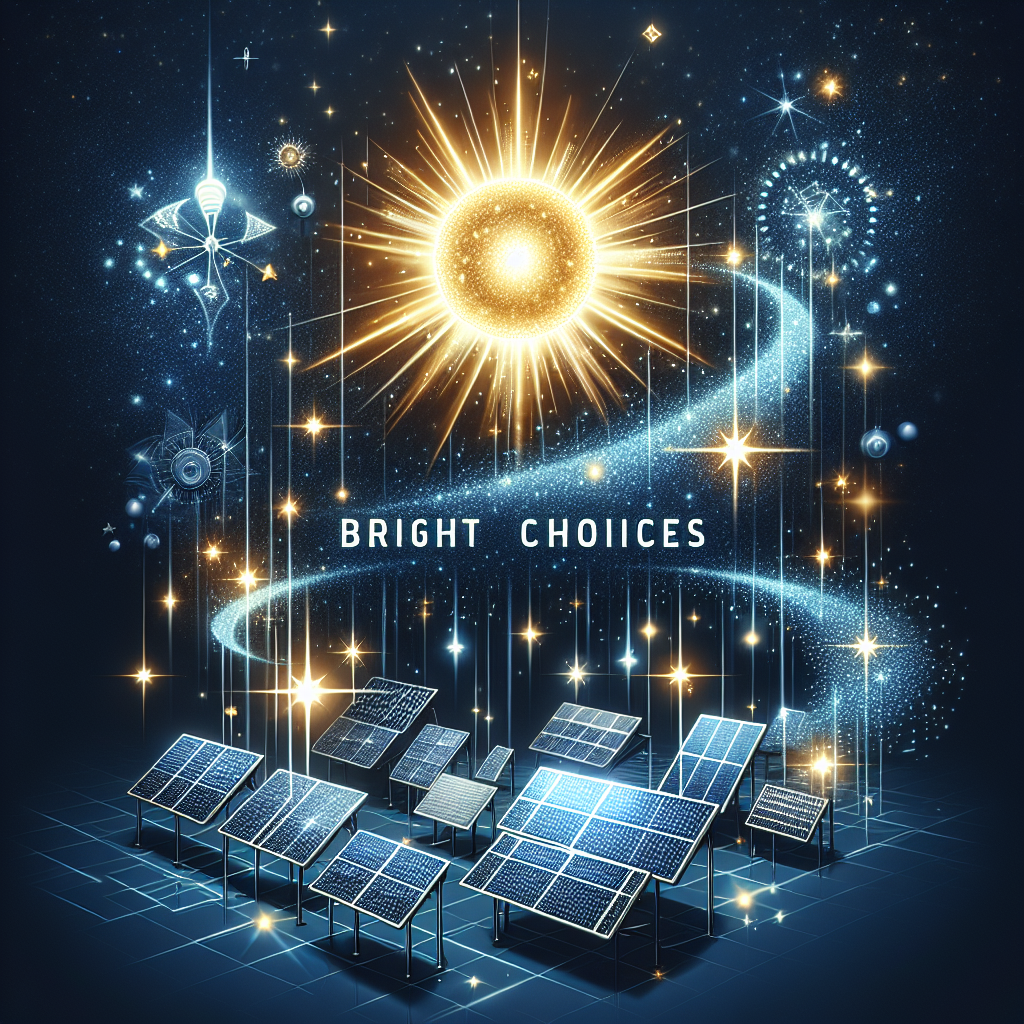In an age of rising energy costs and increasing environmental consciousness, making the switch to solar energy has never been more appealing. But with so many options on the market, how do you choose the perfect solar system for your home? This comprehensive guide will illuminate the path to your solar solution, ensuring you make a bright choice for both your wallet and the planet.
Understanding Solar Power: The Basics
Before diving into the details of selecting a solar system, it’s essential to grasp how solar power works. Solar panels convert sunlight into electricity, which can either be used to power your home or stored in batteries for later use. By harnessing the sun’s energy, homeowners can significantly reduce their electricity bills and their carbon footprint.
Benefits of Solar Energy
Solar energy offers numerous advantages, including:
- Cost Savings: By generating your own power, you can lower your monthly utility bills.
- Increased Property Value: Homes with solar systems tend to sell at higher prices.
- Environmentally Friendly: Solar energy is a renewable resource that reduces greenhouse gas emissions.
- Energy Independence: Solar power gives you control over your energy usage, lessening reliance on utility companies.
Assessing Your Energy Needs
Calculate Your Energy Consumption
The first step in selecting the right solar system is understanding your energy consumption. Review your electricity bills from the past year to find your average monthly usage in kilowatt-hours (kWh). This data will help you determine the size of the solar system you need.
Consider Future Energy Needs
Planning for the future is crucial. If you anticipate changes such as adding new appliances, an electric vehicle, or expanding your family, factor these potential increases into your energy needs assessment.
Types of Solar Systems
Grid-Tied Solar Systems
Grid-tied systems are the most common type of solar installation. They connect directly to the utility grid, allowing you to use solar power while still having access to the grid during cloudy days or at night. These systems are typically more affordable and easier to install since they don’t require battery storage.
Off-Grid Solar Systems
For those who want complete energy independence, off-grid systems are the way to go. They typically include battery storage to store excess energy for use when the sun isn’t shining. While more expensive upfront, they’re ideal for remote locations where grid access is limited.
Hybrid Solar Systems
Hybrid systems combine both grid-tied and off-grid capabilities. They come with battery storage but are also connected to the grid, offering the flexibility of using both solar energy and grid energy as needed.
Choosing the Right Solar Panels
Types of Solar Panels
There are mainly three types of solar panels:
- Monocrystalline: Known for higher efficiency and long lifespan, these panels are made from a single crystal structure.
- Polycrystalline: Slightly less efficient, these are made from multiple crystal structures and are generally more affordable.
- Thin-Film: Lightweight and flexible, thin-film panels are less efficient but can be an excellent choice for specific applications.
Efficiency Ratings
Look for panels with good efficiency ratings. Higher efficiency means more electricity generation, allowing you to maximize the limited roof space.
Understanding Costs and Financing Options
Installation Costs
Solar system costs vary based on factors such as system size, type, and installation complexity. Get multiple quotes from reputable contractors to find the best deal that suits your budget.
Incentives and Rebates
Check for local and federal incentives that can reduce the upfront costs of your solar system. Tax credits, rebates, and grants are often available for homeowners making the switch to solar.
Financing Options
Explore financing options such as solar loans, solar leases, or power purchase agreements (PPAs). Each has its pros and cons, so choose one that aligns with your financial situation and long-term goals.
Choosing the Right Solar Installer
Research and Reviews
Selecting a qualified solar installer is crucial for ensuring your system is set up correctly. Look for local companies with positive reviews and check their credentials, including licenses and insurance.
Service Agreements
Discuss service agreements and warranties before committing. A reliable installer should offer warranties on equipment and labor, providing peace of mind about your investment.
Maintenance and Monitoring
Regular Maintenance
Solar systems are relatively low-maintenance, but it’s vital to clean your panels periodically and check for any shading or debris that could affect performance. Regular inspections can also prolong the life of your system.
Monitoring Your System
Monitor your solar energy production through monitoring software provided by your installer. Most systems come equipped with monitoring tools that allow you to track energy production and ensure everything runs smoothly.
Conclusion: Take the Leap Towards a Sustainable Future
Choosing the perfect solar system for your home can seem daunting, but with a clearer understanding of your energy needs, available options, and reliable installers, you’ll be well on your way to making a bright choice. Not only will you save money in the long run, but you’ll also contribute positively to the environment. Embrace solar power and illuminate your path toward a sustainable future today!


